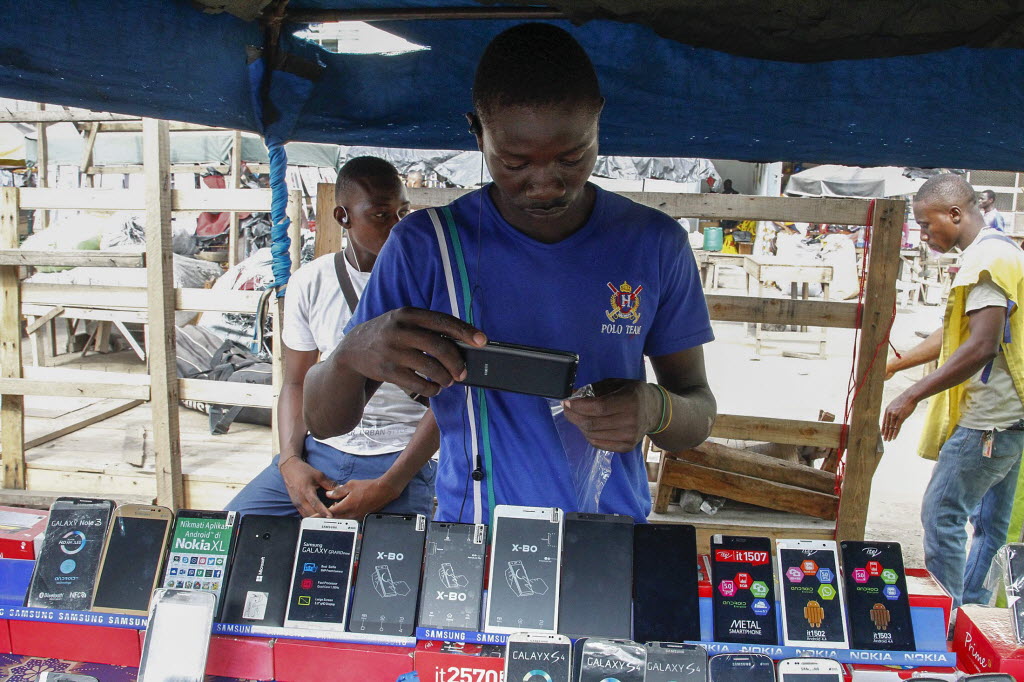![Tech Boom in Africa [video : 86013070]](http://videos.usatoday.net/Brightcove2/29906170001/2016/06/29906170001_4946168087001_4946008681001-vs.jpg?pubId=29906170001)
SAN FRANCISCO — With venture capital flowing in and home-grown businesses building up, Africa is in the midst of a tech boom that’s luring entrepreneurs away from tech centers in the United States and back to their home countries where opportunity beckons.
Sub-Saharan Africa is home to some of the most rapidly growing economies and populations experiencing the fastest rate of urbanization on the planet.
It boasts as many as 200 innovation centers that teach coding, host app competitions and act as the center for a newly emerging tech culture, a panel of Africans and tech experts speaking at San Francisco’s Commonwealth Club said Wednesday.
In the last six months the area is generating Silicon Valley-type headlines, including IPOs, exits and $1 billion start-ups, said speaker Jake Bright, co-author of The Next Africa: An Emerging Continent Becomes a Global Powerhouse. In addition, he said, $300 million to $400 million was invested in African e-commerce start-ups during the same time frame.
co-author of The Next Africa: An Emerging Continent Becomes a Global Powerhouse. In addition, he said, $300 million to $400 million was invested in African e-commerce start-ups during the same time frame.
A survey he conducted this spring estimated that as much as $1 billion in venture capital will flow into the region over the next two years.
In the coming years, a region many Americans associate with drought, famine and corruption could instead become a business powerhouse.
Toro Orero is the managing partner at DraperDarkFlow,
is the managing partner at DraperDarkFlow, a Silicon Valley fund for African start-ups. He noted one advantage for the region is that it can leap-frog over the brick-and-mortar phase many more-established economies struggle to extricate themselves from as they become fully digital.
a Silicon Valley fund for African start-ups. He noted one advantage for the region is that it can leap-frog over the brick-and-mortar phase many more-established economies struggle to extricate themselves from as they become fully digital.
An example Orero gave was Africa’s lack of banking infrastructure, which once necessitated businesses making payments with large bags of cash. With the rise of mobile phone technology, many businesses skipped banks entirely and moved immediately into mobile payments — avoiding an expensive infrastructure buildout.
Heading back
Many of the entrepreneurs creating this new tech subculture studied and worked in the United States and are now returning home, where they’re finding engaging financial opportunities.
One is Chris Folayan, a Nigerian native who saw a need for better e-commerce in Africa when he was living in the United States and went home to build MallforAfrica.com, the continent's largest online mall.
a Nigerian native who saw a need for better e-commerce in Africa when he was living in the United States and went home to build MallforAfrica.com, the continent's largest online mall.
Too many Western e-commerce sites were afraid of doing business in Africa because of concerns over fraud, but Folayan saw an opportunity where others only saw danger.
A growing fintech company, Paga payments was founded by Nigerian entrepreneur Tayo Oviosu. He graduated from Stanford Business School and worked at Cisco before returning home to Nigeria to found Paga.
He graduated from Stanford Business School and worked at Cisco before returning home to Nigeria to found Paga.
The company has now reached its first billion dollars in transactions processed and could become Africa's PayPal, said Bright.
Flowing the other way
African tech is not just drawing talent home, it’s importing talent from the United States.
Bright noted that Ghana's MEST Incubator and VC fund is managed by Katie Sarro, an American from San Francisco. The managing director of the online shopping store Jumia
an American from San Francisco. The managing director of the online shopping store Jumia in Kenya is Parinaz Firozi,
in Kenya is Parinaz Firozi, an American from Texas.
an American from Texas.
Americans can expect to one day have African stocks in their 401(k)s, find themselves watching Nigerian movies on Netflix and downloading Kenyan songs from iTunes, all via tech innovations developed in Africa, said Bright.
“In the future,” he said, “Americans are definitely going to be learning a lot more African names than just Barack Obama and Nelson Mandela.”


![636017544082295095-cellphonesivorycoast.JPG [image : 86030278]](http://www.gannett-cdn.com/media/2016/06/17/USATODAY/USATODAY/636017544082295095-cellphonesivorycoast.JPG)
